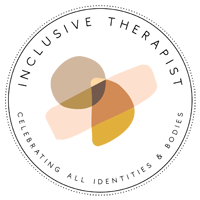As a therapist attuned to potential risks in relationships, I’ve worked with many clients who struggle with setting boundaries. It’s a common issue that often brings anxiety – something I understand from my own experiences. Today, let’s explore why setting boundaries can feel daunting and how we can work through that anxiety to create more secure, healthier relationships.
Why Setting Boundaries Makes Us Anxious
Feeling anxious about setting boundaries is normal. Even as a therapist, I still sometimes feel a knot in my stomach when setting a boundary. Here’s why it can feel challenging:
- Fear of conflict: We worry about confrontation or upsetting others.
- Guilt: We may feel disloyal or unkind by saying “no” or setting limits.
- Fear of abandonment: We worry people might leave us if we set boundaries.
- Lack of practice: If we’re not used to it, setting boundaries feels like uncertain territory.
Understanding these reasons is the first step in addressing our anxiety. Remember, these feelings don’t mean we shouldn’t set boundaries – they’re part of the process of creating more secure relationships.
Strategies to Ease Boundary-Setting Anxiety
Let’s explore some practical ways to manage the anxiety that comes with setting boundaries:
1. Start Small and Build Gradually
Begin with something small in a situation where you feel relatively safe. I started by setting a boundary with my partner about not having serious conversations when I’m just waking up or right after work. It felt scary at first, but his positive response gave me confidence to set more boundaries. Small steps can lead to big changes.
2. Use “I” Statements to Minimize Conflict
Focus on expressing your own needs rather than criticizing the other person. Instead of saying “You’re always interrupting me,” try “I need some space to think before responding.” This approach can reduce defensiveness and ease your anxiety about potential conflict.
3. Prepare, Practice, and Have a Backup Plan
Try writing down what you want to say, then practice saying it aloud. I love practicing in the mirror or while taking a walk outside. Consider preparing for different possible reactions. Having a plan for various scenarios can help you feel more secure and in control.
4. Remind Yourself Why Boundaries Are Important for Security
When anxiety creeps in, remember why you’re setting the boundary. Is it to protect your mental health? To have more time for self-care? To improve your relationships?
Healthy boundaries lead to more stable, sustainable relationships. You’re not pushing people away – you’re creating conditions for closer, more authentic connections.
I have a friend who struggles with anxiety. Sometimes when we have plans, he’ll tell me he’s feeling too anxious that day to follow through. This gives me the opportunity to support him, assure him we’re okay, and make plans for when he’s feeling better. His needs are honored, and because he’s honest with me, we’re closer!
5. Challenge Your Anxious Thoughts with Facts
When “what if” thoughts arise (“What if they get angry?” “What if they don’t want to be my friend anymore?”), challenge them with facts and past experiences. Has this person respected your boundaries before? What evidence do you have that this will go poorly? Often, our fears are exaggerated, and reality is less scary than we imagine.
6. Practice Self-Compassion and Self-Protection
Setting boundaries can bring up feelings of guilt or disloyalty. Treat yourself with kindness and remember that self-protection isn’t selfish. I often encourage my clients to put a hand on their heart and say, “It’s okay to have limits. It’s okay to protect myself.” This simple act can be powerful in building inner security.
7. Learn Your Nervous System Responses
Recognize how anxiety feels in your body and practice calming your nervous system. Try breathing into tense areas, speaking lovingly to them, and practicing muscle relaxation to reduce physical symptoms and think more clearly. Once you’ve got it down on your own, practice when talking to someone. Little by little, it’ll become natural, and you can use this skill when setting boundaries to make it less distressing.
8. Celebrate Your Efforts and Learn from Each Experience
Celebrate every boundary you set, no matter how small! Setting boundaries is a skill that gets easier with practice. After each experience, reflect on what went well and what you could do differently next time. This analysis helps refine your approach for future situations.
Remember: It’s a Process of Building Security
Learning to set boundaries and manage anxiety is a journey towards greater relational security, not a destination. There will be easier times and more challenging ones. What matters is that you keep trying and stay committed to creating safer, healthier relationships.
If anxiety about setting boundaries significantly impacts your life, don’t hesitate to reach out to a mental health professional. Sometimes, having support as you navigate this process can make all the difference in feeling secure enough to assert your needs.
Remember, you have the right to set boundaries. By doing so, you’re not just taking care of yourself – you’re creating the foundation for more authentic, fulfilling, and secure relationships. It might feel anxiety-provoking now, but with time, practice, and the right strategies, it does get easier. You’ve got this, and you’re building a safer, healthier future with every boundary you set!
Learn More
If you’re interested in learning more about the connection between anxiety and boundaries, we invite you to check out our Anxiety Therapy Page.
If you’d like to reach out to us, you are welcome to contact us here.













